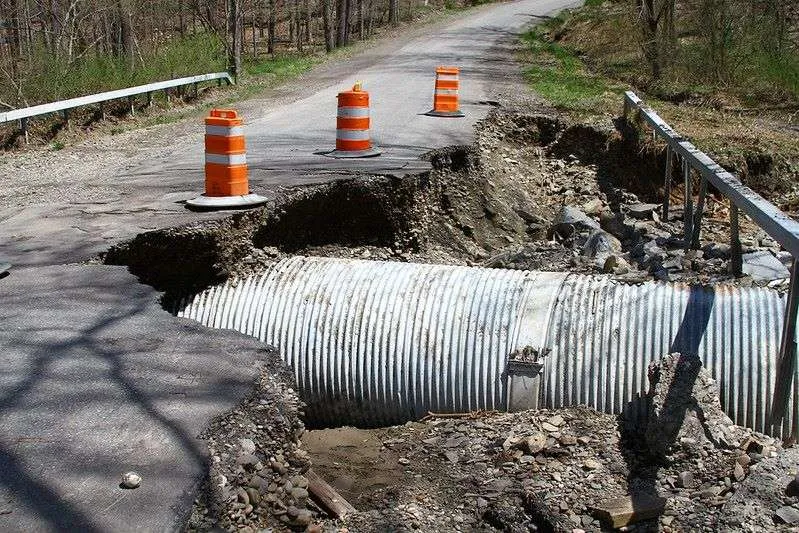Sanford’s Climate Plan Takes Aim at Culvert Washouts
- February 3rd 2024
- City NewsPublic Safety

A culvert washout
Photo: Chris Waits via Creative Commons
By Lee Burnett
Conducting a vulnerability assessment of stormwater infrastructure is emerging as The City of Sanford’s top priority for addressing climate change in the near term. That was the consensus of a lightly attended public workshop to gather comments on a range of options held on Feb. 1.
The session is a requirement for applying for participation in the Community Resiliency Partnership Program, a centerpiece of Governor Mill’s climate action agenda. Qualifying communities are eligible for a $50,000 community action grant which can be spent either on mitigating climate change or adapting to climate change.
The vulnerability assessment would map underground utilities and vulnerabilities to extreme weather events and would also prioritize remedies, such as resizing culverts prone to washouts. City Manager Steven Buck said the assessment would tie in nicely with other planning under way, such as a Comprehensive Plan rewrite, Heads Up and Safe Streets for All transportation safety plans.
Five members of the public attended the workshop along with three city councilors and several city staffers. Others attended by Zoom. Presentations were made by City Planner Erin Moriarty; Karina Graeter, sustainability coordinator for the Southern Maine Planning Commission; and Alex Brown, conservation technician for York County Soil and Water Conservation District.
Most of the discussion centered on the practical considerations of getting the most bang for the buck and spending the money within two years. Installing heat pumps in city buildings and taking additional measures to protect wetlands were deemed to be insufficiently impactful. Installing bike racks around the city was an early favorite as a highly visible way to encourage less car driving, but support fell away when discussion turned to actual locations. Any bike rack installed in the downtown area would have to be torn out when many of those streets are reconstructed in 2026. Furthermore, a bike rack installed on private property is an ineligible use of funding. Installing rain gardens and other green stormwater infrastructure along city streets lost its initial appeal when discussion turned to the sustainability of maintenance by volunteers.






